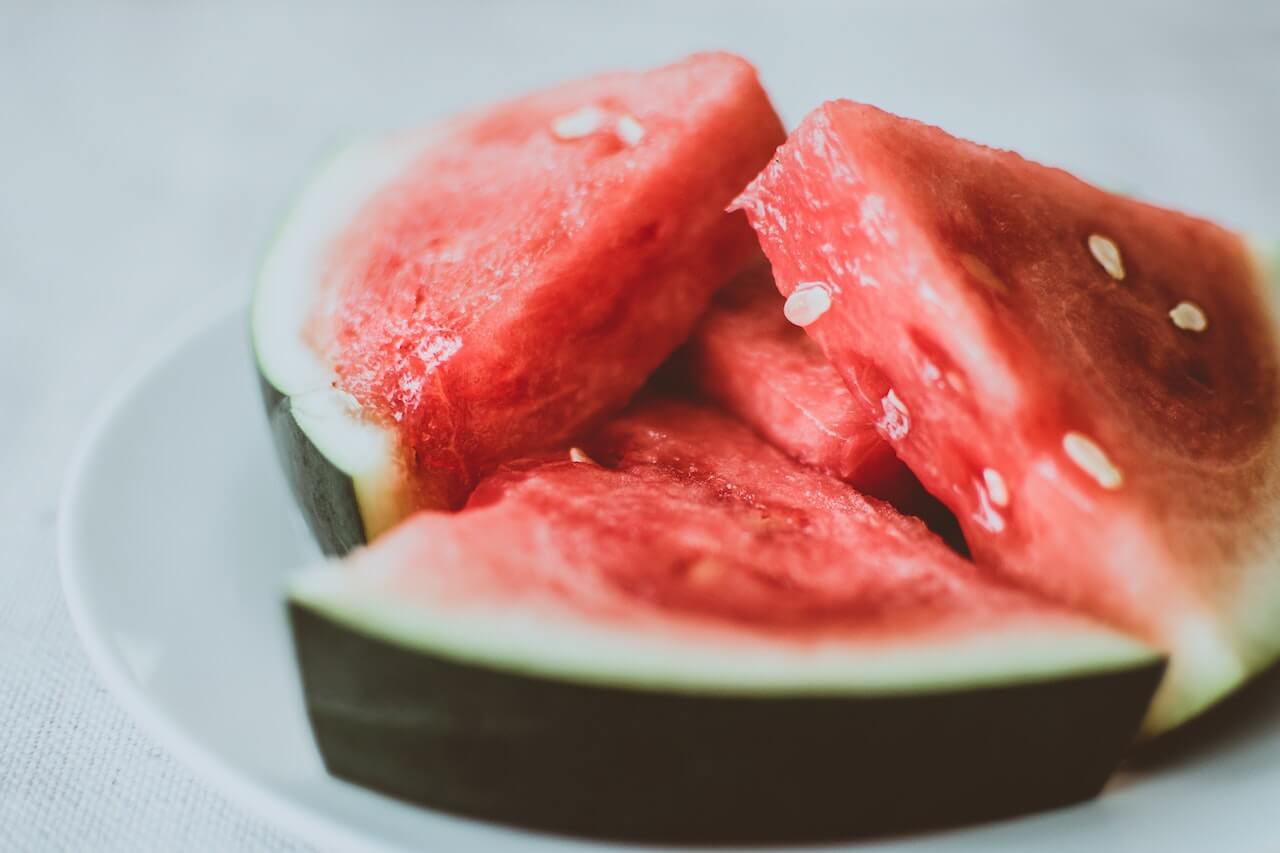Watermelon is a favorite summer fruit and healthy food you can enjoy throughout the year. Watermelon is sweet, delicious, and hydrating and is often enjoyed as a snack or as part of maintaining overall health. It's known for its high water content and natural sugars that provide a burst of energy without the need for added sugars. If you are living with type 2 diabetes or looking to maintain a healthy weight, you need to understand the glycemic index of watermelon and its effects on blood sugar. In this article, we'll explore the glycemic index of watermelon, its nutritional profile, and its health benefits.
Watermelon Glycemic Index
The glycemic index (GI) is a scale that measures how quickly a food raises blood sugar levels. Foods with a high GI are rapidly absorbed and cause a quick spike in blood sugar, while low glycemic index foods are absorbed more slowly and have a more gradual effect. Watermelon has a glycemic index score of around 76, which is considered high. However, recent studies have suggested that this score may be lower due to the unique composition of the fruit.
It's also important to consider the glycemic load (GL), which considers both the GI and the amount of carbohydrates in a serving. Watermelon has a relatively low glycemic load, meaning that it's unlikely to significantly impact blood sugar levels when consumed in moderate portions.
{{mid-cta}}
Watermelon’s Effect on Blood Sugar
While watermelon is high on the glycemic index, its low glycemic load moderates its effect on blood sugar levels. The reason for this is the relatively low carbohydrate content in watermelon. A standard serving of watermelon (about 1 cup, diced) contains approximately 12 grams of carbohydrates, with 9 grams coming from natural sugars. Due to this low carbohydrate content, eating watermelon in moderation is unlikely to cause a significant spike in blood sugar levels.
How Much Watermelon Can a Diabetic Eat Safely?
A standard serving size of 1 cup of diced watermelon is generally safe for those living with diabetes, but it's important to keep an eye on portion sizes and consider individual carbohydrate tolerance. Consulting with a healthcare provider or dietitian is recommended for personalized guidance.
Watermelon’s Nutritional Profile
In addition to being delicious and hydrating, watermelon is packed with nutrients. Here's the nutritional profile for a standard serving of watermelon (1 cup, diced):
- Calories: 46
- Carbohydrates: 12 grams
- Fats: 0.2 grams
- Protein: 0.9 grams
- Sodium: 1.5 milligrams
- Sugar: 9 grams
- Fiber: 0.6 grams
Watermelon is a good source of vitamins and minerals, including vitamins A, C, and potassium. It also contains small amounts of magnesium, vitamin B6, and dietary fiber.
Is Watermelon Good for You? Potential Health Benefits
Watermelon offers a range of health benefits, including:
High in vitamins and minerals
Watermelon is rich in vitamins A and C, essential for a healthy immune system. It also provides potassium, which supports heart health and regulates blood pressure.
Hydrating fruit
Watermelon is composed of approximately 92 percent water, making it an excellent choice for staying hydrated, especially during hot weather.
Supports digestive health
The fiber content of watermelon aids in digestion and promotes regular bowel movements.

Watermelon and Weight Loss
Watermelon can be a great addition to a weight loss diet due to its low calorie and high water content. A standard serving of watermelon contains only 46 calories, making it a satisfying snack that won't break the calorie bank. Additionally, watermelon’s carbohydrate content is relatively low, with only 12 grams of carbs per serving. Its high water content also helps promote a feeling of fullness, which can reduce overall calorie intake and support weight loss goals.
How to Include Watermelon in Your Diet
The benefits of watermelon are best enjoyed in moderation to avoid overdoing it on natural sugars. Aim for a serving size of about 1 cup of diced watermelon, which has 12 grams of carbohydrates, and consider incorporating it into your meal plan a few times a week.
Here are some easy and delicious ideas for including watermelon in your diet:
Watermelon Salad
For a refreshing and hydrating salad, combine diced watermelon with cucumber, feta cheese, mint leaves, and a drizzle of olive oil and balsamic vinegar.
This combination of flavors provides a balance of sweetness, saltiness, and tanginess, making it a perfect summer dish.
Watermelon Juice or Smoothie
Blend watermelon chunks with ice and a squeeze of lime to make refreshing watermelon juice. Alternatively, add watermelon, Greek yogurt, and a handful of spinach to a blender to create a nutritious and hydrating smoothie.

Watermelon Popsicles
For a cool treat on a hot day, pour pureed watermelon into popsicle molds. Freeze until solid, and enjoy a low-calorie, naturally sweet popsicle. You can also add other fruits, such as strawberries or blueberries, for additional flavor and nutrients.
Watermelon Lemonade or Mocktails
Elevate your regular lemonade by adding watermelon puree to the mix. Serve it over ice with a slice of lemon for a delightful summer beverage. Mix watermelon juice with sparkling water and garnish with fresh mint for a mocktail twist.
If you are wondering about watermelon seeds, they are edible and packed with nutrients like magnesium and healthy fats. You can eat them with the fruit or roast them for a crunchy snack.
As you can see, watermelon is a delicious and nutritious fruit with a relatively high glycemic index score. However, its low glycemic load and moderate carbohydrate content means it can be safely enjoyed in reasonable portions. Whether you're seeking to manage blood sugar levels, support weight loss, or simply enjoy a tasty and hydrating treat, watermelon offers a wide range of benefits. Remember to consult with a healthcare provider or nutritionist if you have specific dietary needs or concerns, and enjoy the wonderful health benefits of watermelon.
Learn How to Improve Your Nutrition and Monitor Your Blood Sugar Levels with Signos.
Signos’ CGM can improve health by helping you achieve healthy eating habits and keeping track of your diet, sleep, and exercise patterns. Signos empowers you with specific and real-time information about how your habits affect your overall health. Find out if Signos is a good fit for you by taking a quick quiz.
- Item 1
- Item 2
- item 3
































